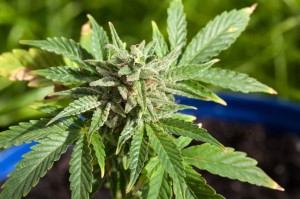Legalizing Marijuana for the Greater Good

Because this year’s annual American Humanist Association Conference was in Denver, Colorado, I had the opportunity to try marijuana. As I’ve mentioned in my past articles, I have cerebral pals, and my muscles are always tight. I let my doctors know about my intention to try marijuana before my trip, and they strongly supported my idea. Medical marijuana has recently been legalized in my home state of Massachusetts, but none of my doctors are willing to take the chance to prescribe it for me because the federal government considers marijuana to be a Schedule 1 drug, on the same level as heroin, and their respective medical directors have threatened to fire them if they prescribe it for me. While in Denver, I tried several versions of medical marijuana, and they did make my leg muscles feel much more relaxed.
I am a proponent of marijuana being legalized nationally, because it is natural and moral. Having recently completed a philosophy course in college, I reflected on this issue in the context of moral philosophies. From an egoist perspective (i.e., one ought to act in one’s own best interest), marijuana helps people with disabilities. People with cerebral palsy and multiple sclerosis can use marijuana as medicine to relax their muscles. Marijuana has also been shown to help people with seizure disorders, and it’s immoral to withhold such promising treatments from those who could benefit from their use.
Legalizing marijuana is also good for the economy and job creation. In 2014, Colorado created more than 10,000 new jobs in support of the medical and recreational marijuana industries. Cannainsider.com predicts that 200,000 new jobs will be created nationwide in states that have legalized either medical or recreational marijuana use. Most of these jobs pay well above the minimum wage.
From a utilitarianism perspective, the greater good of legalizing pot is that, if legal, we would be able to tax it, and the money could then be used to fund public schools, public transportation, police officer salaries, and other public services. The funds could also be used to help fix our decaying roads and bridges.
Finally, from a human perspective, it is wrong to put people in jail for getting high. If adult Americans have a right to drink alcohol, then we should also have the right to use marijuana.
There is now a bipartisan bill in Congress that would declassify pot from a Schedule 1 to a Schedule 2 drug so that doctors could prescribe medical marijuana without the fear of losing their license to practice medicine. Senators Cory Booker (D-New Jersey), Kirsten Gillibrand (D-New York), and Rand Paul (R-Kentucky) have drafted the bill, and I strongly support it.
My trip to Denver was well worth it. I learned more about humanism, had many interesting conversations, and successfully tested how medical marijuana can benefit me and others. I am grateful that the American Humanist Association is helping me to expand my horizons.
